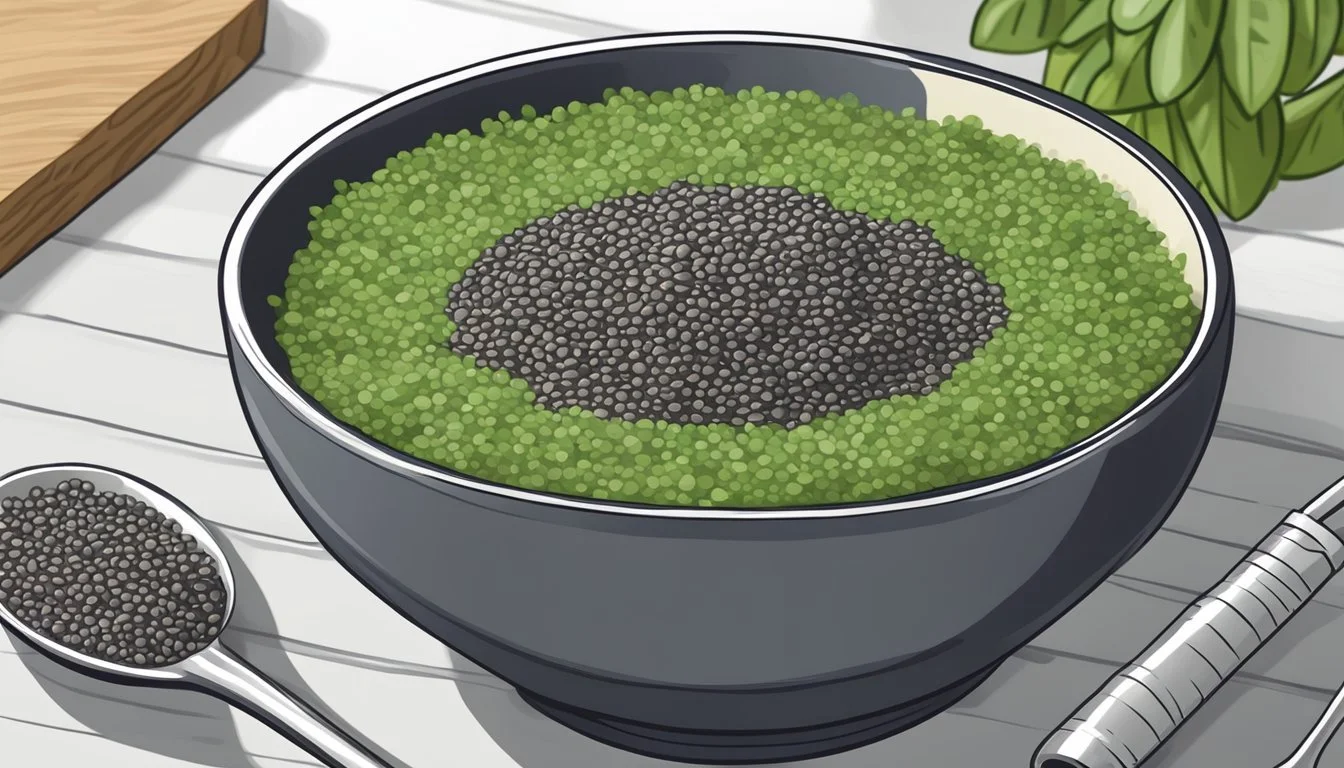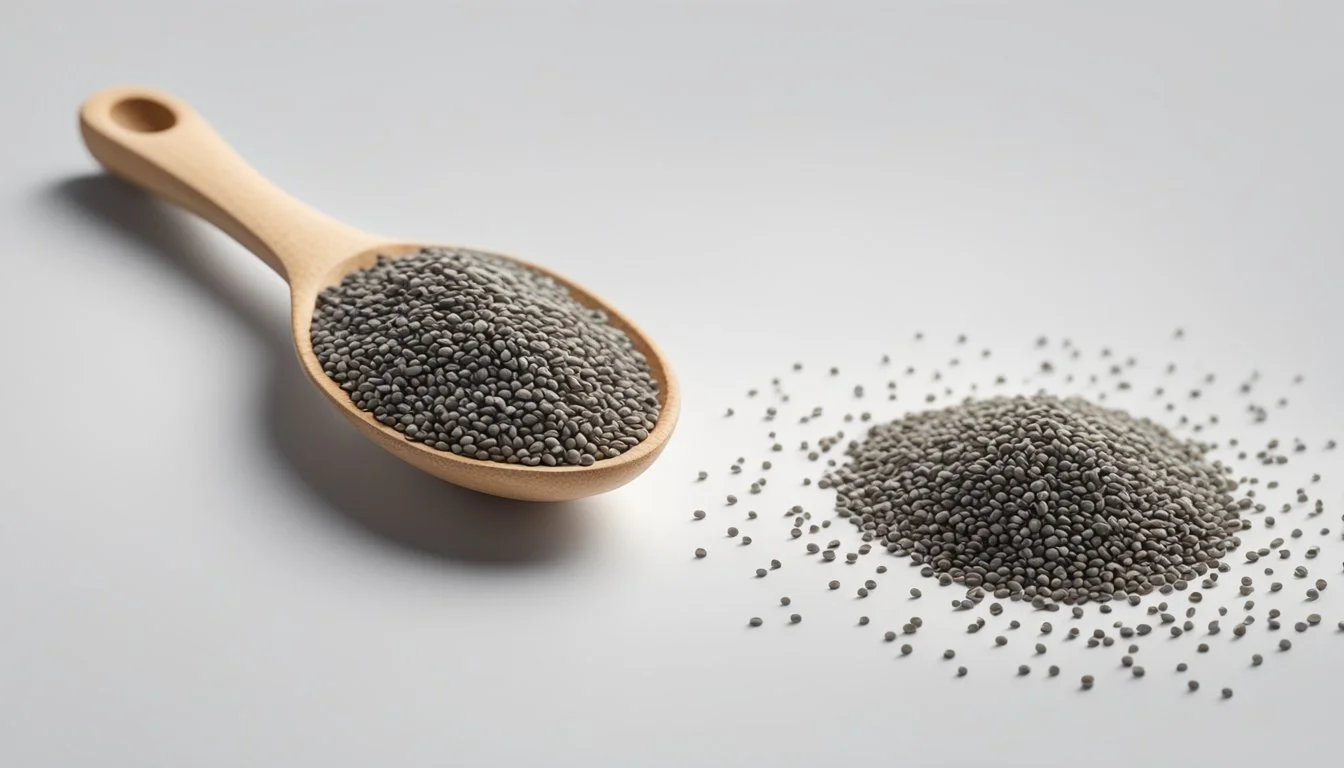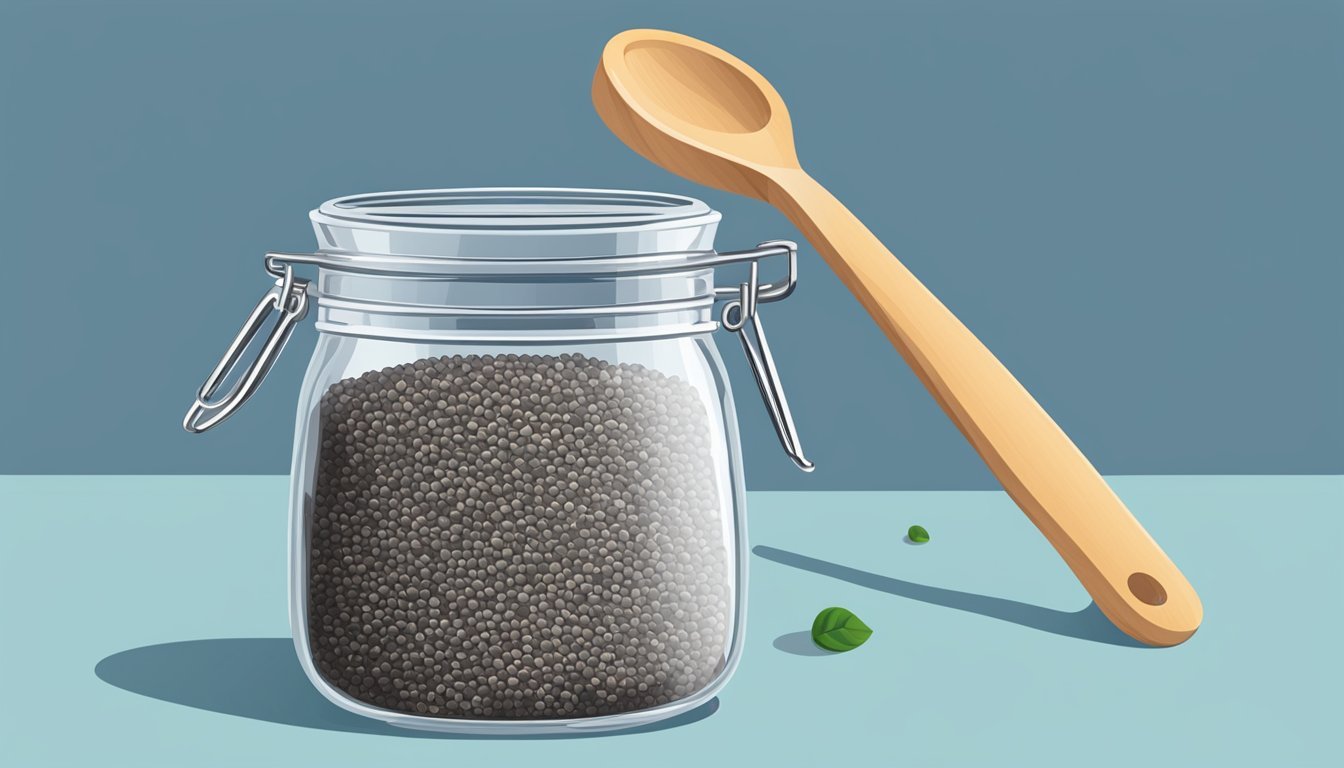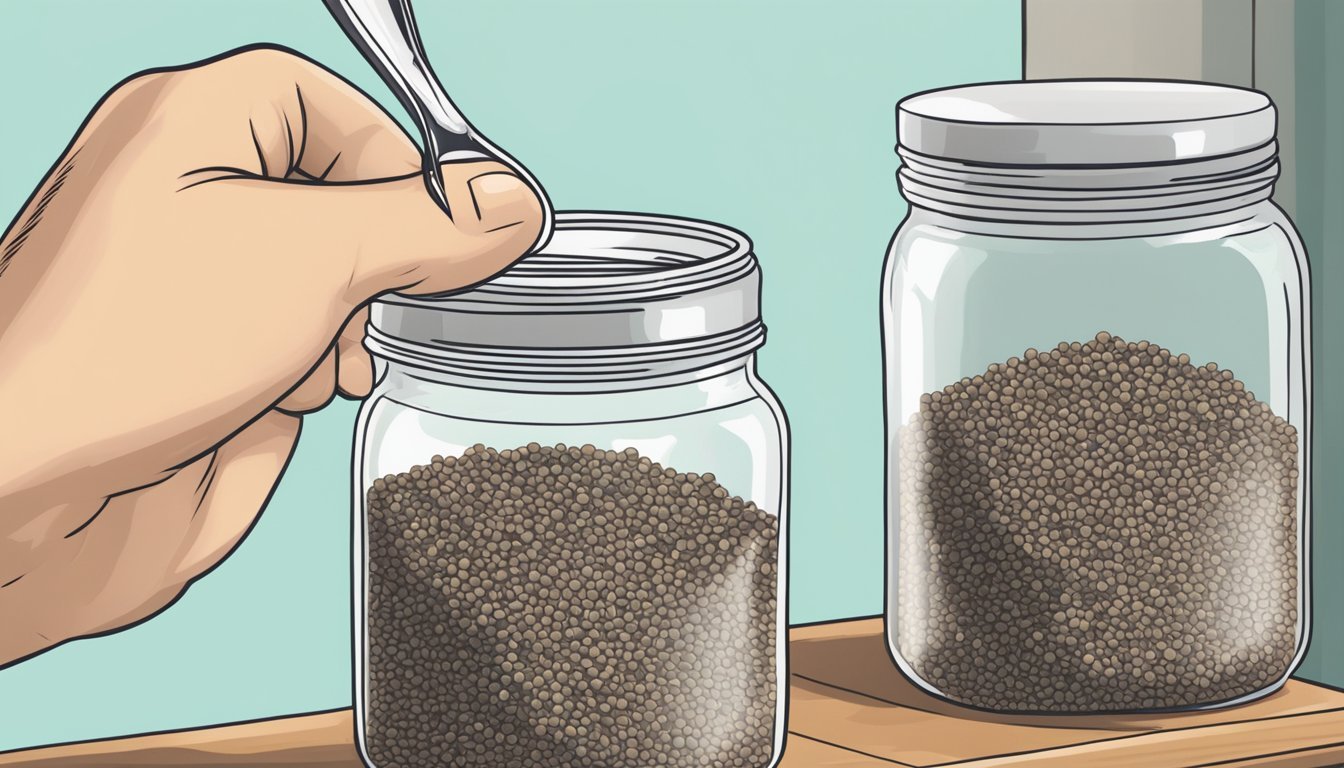How Many Tablespoons of Chia Seeds Should You Eat Daily?
Optimal Daily Intake Explained
Chia seeds have garnered widespread attention for their nutrient-dense profile and are often incorporated into a health-conscious diet for their high levels of protein, fiber, omega-3 fatty acids, and various micronutrients like magnesium and calcium. The consumption of chia seeds is not only a modern trend but also has roots in ancient practices, where they were a staple for Mayan and Aztec civilizations. Today, they are celebrated for their versatility and ease of use, being a simple addition to smoothies, yogurts, and baked goods.
It is generally recommended that adults consume about one to two tablespoons of chia seeds daily. This amount provides a balanced serving of the nutrients without overburdening the digestive system, especially for those not accustomed to a high fiber diet. Introducing chia seeds gradually into one's diet can help the digestive system adjust, mitigating potential discomfort that can arise from consuming a rich source of fiber too quickly. Adequate hydration is also essential due to the seeds' high absorbency and expansion when ingested.
Nutrition Profile
Chia seeds pack a dense nutritional punch for their size, making them a valuable addition to any diet. They offer a balance of essential macronutrients and micronutrients, including a high fiber content and a range of vitamins and minerals.
Macronutrients
Chia seeds are composed predominantly of carbohydrates, fats, and proteins. A serving size of two tablespoons (approximately 1 ounce or 28 grams) typically contains:
Calories: Around 138 to 140 calories
Carbohydrates: About 12 grams, predominantly in the form of dietary fiber, which constitutes about 83% of the total carbohydrate content
Fiber: Roughly 11 grams, aiding in digestion and satiety
Proteins: Approximately 4 grams, making them a plant-based source of complete protein with all essential amino acids
Fats: Around 9 grams, with a significant portion being omega-3 fatty acids, beneficial for heart health
Vitamins and Minerals
Chia seeds are also a rich source of various vitamins and minerals that are crucial for maintaining good health:
Calcium: An ounce provides about 18% of the Recommended Dietary Allowance (RDA), supporting bone health
Magnesium: Offers 18% of daily value, aiding in numerous biochemical reactions in the body
Phosphorus: Supplies 27% of RDA, which is vital for bone and teeth formation and cellular repair
Iron: Essential for red blood cell production
Zinc: Important for immune function, DNA synthesis, and cellular metabolism
Copper, Manganese: Trace minerals with antioxidant properties and enzymatic roles
Chia seeds also contain smaller amounts of vitamins B1, B2, B3, and E, further expanding their nutritional profile.
Health Benefits
Chia seeds are packed with nutrients that confer various health advantages. They are a rich source of dietary fiber, omega-3 fatty acids, protein, and essential minerals, which together contribute to overall well-being.
Digestive Health
Chia seeds are a substantial source of dietary fiber, with one ounce (about 2-3 tablespoons) providing 9.8 grams. The fiber in chia seeds assists in maintaining bowel regularity and may help prevent constipation. By promoting a healthy digestive system, chia seeds may also reduce the risk of chronic diseases.
Heart Health
The omega-3 fatty acids found in chia seeds, particularly alpha-linolenic acid (ALA), are known for their beneficial effects on heart health. These fatty acids can help reduce blood pressure and cholesterol levels, potentially lowering the risk of heart disease.
Weight Management
Chia seeds can be a helpful addition to a diet for weight management due to their high fiber and protein content. These nutrients promote satiety and may help reduce obesity by curbing overeating.
Diabetes Management
Studies suggest that chia seeds can play a role in diabetes management. Their ability to improve blood sugar levels and increase insulin sensitivity makes them a beneficial choice for those with type 2 diabetes.
Anti-Inflammatory Properties
The presence of omega-3s and antioxidants such as quercetin and kaempferol gives chia seeds anti-inflammatory properties. They help combat free radicals and reduce inflammation, which is a key factor in many diseases.
Bone Health
Chia seeds are also a source of calcium, providing about 18% of the recommended daily allowance in a single ounce. Along with magnesium and phosphorus, these nutrients support bone health and the maintenance of strong muscles.
Optimal Daily Intake
Chia seeds are recognized for their high fiber content and nutritional value, offering a blend of protein, omega-3 fatty acids, and various micronutrients. Determining the right serving size can maximize these health benefits while minimizing potential digestive discomfort.
For starters, half a tablespoon is a safe amount and is especially recommended for individuals not accustomed to high-fiber diets. Individuals can adjust their intake from there, aiming for a standard serving size of about one to two tablespoons daily.
A balanced intake would look like this:
Starting Dose: ½ tablespoon
Standard Serving: 1-2 tablespoons
It's crucial to stay within these limits to avoid gastrointestinal issues, as the body needs time to adapt to the high fiber content of chia seeds.
Nutritionally, two tablespoons of chia seeds typically contain:
Nutrients Amount Calories 138 Protein 4.6 grams Carbohydrates 11.9 grams Fat 8.7 grams Fiber 9.8 grams
Once a comfortable serving size is established, chia seeds are incredibly versatile. They can be incorporated into a variety of dishes, from puddings and smoothies to yogurts and salads. However, if soaked, the typical ratio is 1/4 cup of chia seeds to 1 cup of liquid, which should be left to sit until it reaches a pudding-like consistency.
To conclude, consumption of up to 50 grams (approximately 5 tablespoons) of chia seeds is generally safe for most individuals, but it is advisable to aim for one to two tablespoons daily to harness their nutritional benefits without overburdening the digestive system.
Culinary Uses
Chia seeds are versatile ingredients that can enhance nutritional value and texture in various dishes. They are celebrated for their ability to form a gel-like consistency when soaked and for their nutrient-rich profile that includes omega-3 fatty acids, proteins, and fibers.
Chia Seed Pudding
Chia pudding is a popular way to consume chia seeds. To make it, one mixes chia seeds with a liquid such as milk or a milk alternative at a ratio of 1:4 (chia seeds to liquid). The mixture should then soak for at least 15 minutes to achieve the desired thick consistency, but typically it sits in the refrigerator overnight. Chia pudding can be customized with various toppings like fruit, nuts, and honey.
Smoothies and Beverages
Chia seeds can be added to smoothies, imparting a boost of nutrients without significantly altering taste. A tablespoon of chia seeds in one's smoothie can contribute to a fuller feeling due to its fiber content. They can also be added to water or juice; it is common to let them soak briefly to form a gel-like substance before consuming, which can aid in maintaining stable blood sugar levels.
Baking and Cooking
Baked goods benefit from chia seeds for added texture and nutrients. When ground, they can serve as a substitute for eggs in recipes—2 teaspoons of ground chia seeds mixed with 3 tablespoons of water constitutes one egg. Alternatively, whole chia seeds can be sprinkled onto cereal or incorporated into sauces to thicken them without altering flavor profiles.
Salads and Soups
Chia seeds can be sprinkled over salads for a crunchy texture and nutrient kick. When chia seeds are soaked, they develop a gelatinous coating that can help emulsify dressings. They also can be added to soups either whole or ground to thicken the soup while adding fiber and proteins, enhancing the dish's nutritive value without additional calories from fats or sugars.
Preparation and Usage Tips
When incorporating chia seeds into a daily diet, understanding preparation methods is crucial for optimal nutrient absorption and versatility in recipes. They can be soaked to enhance digestibility, ground to facilitate omega-3 fatty acid absorption or used as alternatives to common ingredients.
Soaking Chia Seeds
Soaking chia seeds enhances their digestibility and allows them to form a gel-like substance due to the soluble fiber content. For a basic chia pudding, a person can mix 1/4 cup of chia seeds into 1 cup of liquid, such as water, milk, or yogurt. This should ideally be left at room temperature for at least 20 minutes or refrigerated overnight. Soaking is not only beneficial for making puddings but also for adding chia seeds to oatmeal or smoothies without changing their texture significantly.
Grinding Seeds
Individuals seeking to boost their intake of omega-3 fatty acids may opt to grind chia seeds, scientifically known as Salvia hispanica, into a fine powder. This can enhance the body's ability to access the fatty acids within the seeds. Ground chia seeds can be added to flour when baking or used as an egg replacer in recipes, usually by mixing 1 tablespoon of ground chia seeds with 3 tablespoons of water to replace one egg.
Chia Seed Alternatives
For those who might be interested in variations or cannot consume chia seeds, chia sprouts are a viable alternative and can be used in salads and sandwiches. Additionally, other high-fiber seeds such as flaxseeds or hemp seeds may serve as substitutes in recipes, keeping in mind that soaking or grinding techniques may vary with different seed types.
Potential Side Effects and Considerations
While incorporating chia seeds into one's diet can yield several health benefits due to their nutrient-rich profile, individuals should be cognizant of potential side effects and considerations. Consuming chia seeds within recommended amounts minimizes risks, but excessive intake can lead to complications.
Gastrointestinal Concerns
Chia seeds are high in fiber, with approximately 10 grams present in 2 tablespoons. While fiber is crucial for gut health, it's imperative that individuals increase their intake gradually. An abrupt high intake can lead to gastrointestinal issues such as bloating and gas. Chia seeds can also absorb water and expand, posing a risk of choking if not consumed properly.
Allergic Reactions
Though less common, some people may experience allergic reactions to chia seeds. Signs might include hives, itching, or severe cases of anaphylaxis. It's essential for those with known allergies to seeds to consult with a healthcare provider before adding chia seeds to their diet.
Interaction with Medications
Individuals on certain medications, particularly those related to high blood pressure or anticoagulants, should be cautious. Chia seeds can potentially interact with these medications due to their blood-thinning properties. Consultation with a healthcare professional is recommended to avoid any adverse impacts on health.
Historical and Cultural Significance
Chia seeds, scientifically known as Salvia hispanica, have a rich history dating back to civilizations of ancient Mexico, notably among the Aztecs. They were not merely a food item but also a component of religious rituals and economic exchange. The Aztecs gave immense value to these seeds, using them as both sustenance and currency.
The nutritional profile of chia seeds was well recognized, making them a staple in the diets of the Aztecs. It was believed that a small amount could sustain a warrior for an entire day. The endurance qualities of chia seeds made them essential for messengers who traversed vast distances. These seeds were not a marginal part of the Aztec diet but one of its main foods.
In modern times, chia seeds have regained popularity worldwide. Their historical significance as a superfood has been validated by contemporary research, affirming the claims of ancient civilizations about their health benefits. In today's health-conscious societies, chia seeds are often incorporated into various dietary plans, appreciated for their high fiber, protein, and omega-3 fatty acid content.
Nutrient Amount in Two Tablespoons (28g) Calories 138 kcal Protein 4.6g Fiber 9.8g Fat 8.7g
Chia seeds are indeed a link to a time when food was deeply connected to culture and well-being – a tradition that continues in various forms to this day.
Buying and Storing
When purchasing chia seeds, one should consider the nutritional value that these small but mighty seeds bring to the table. Chia seeds are a versatile food that can be a great addition to a variety of dishes, contributing to energy levels and metabolism support due to their high content of fiber, protein, and omega-3 fatty acids.
Shopping Tips:
Look for chia seeds that are either black or white in color; they should have no smell and be free from any moisture.
Ensure the packaging is sealed properly to maintain freshness.
Opt for organic chia seeds if you prefer foods grown without the use of pesticides.
Storing Chia Seeds:
Once opened, transfer chia seeds to an airtight container to preserve their shelf life and prevent moisture from entering.
Store in a cool, dark place like a pantry or kitchen cabinet; chia seeds can also be kept in the refrigerator.
They have an impressive shelf life, often staying good for up to 4-5 years if stored correctly.
Useful Tip: Using a clear glass container not only helps you keep an eye on your stock but also checks for any signs of spoilage, which is extremely rare when stored properly.
By following these storage guidelines, individuals can ensure that they maintain the chia seeds' nutritional value, allowing them to reap the benefits of this energy-boosting superfood.









